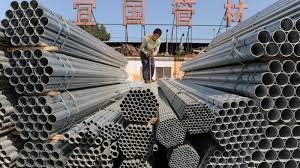Globaltraded.com — Singapore’s economy, one of the world’s most open and dynamic, operates as a global business hub with deep connections across international markets. Its strategic location, stable political environment, and robust regulatory framework attract trade and investment worldwide, making it a core player in the global economy. Today, we take a closer look at the top ten countries that drive trade volume with Singapore, each playing a vital role in various sectors, from manufacturing to finance, technology, and natural resources.
- China
- Overview: As Singapore’s top trading partner, China has established extensive economic ties across industries, including technology, finance, and logistics.
- Trade Volume: In 2023, bilateral trade between Singapore and China exceeded SGD 200 billion.
- Key Sectors: Electronics, machinery, petrochemicals, and food products.
- Strategic Alliances: China and Singapore have collaborated on key initiatives such as the Belt and Road Initiative (BRI), bolstering connectivity across Asia and beyond. Their economic partnerships continue to expand with projects like the Chongqing Connectivity Initiative and a free trade agreement aimed at enhancing bilateral trade.
- Malaysia
- Overview: Malaysia remains one of Singapore’s closest trading partners, both geographically and economically.
- Trade Volume: The annual trade volume between Singapore and Malaysia is close to SGD 120 billion.
- Key Sectors: Electronics, refined petroleum, chemicals, and machinery.
- Mutual Dependencies: Singapore relies on Malaysia for resources like water and certain agricultural products, while Malaysia benefits from Singapore’s financial and logistics capabilities. Both nations are integral to each other’s supply chains, particularly in the electronics sector.
- United States
- Overview: A major trade partner for Singapore, the United States plays a critical role in sectors like finance, technology, and defense.
- Trade Volume: Total trade volume between Singapore and the U.S. approaches SGD 100 billion annually.
- Key Sectors: Pharmaceuticals, electronics, aircraft, and financial services.
- Collaborative Ventures: The United States-Singapore Free Trade Agreement has fueled trade and investments. The U.S. also supports Singapore in technology and innovation, with significant American tech companies establishing regional headquarters in the city-state.
- Indonesia
- Overview: Indonesia’s proximity and economic growth have made it a strong trading partner with Singapore.
- Trade Volume: Bilateral trade between Indonesia and Singapore hovers around SGD 85 billion annually.
- Key Sectors: Oil, natural gas, tourism, and agriculture.
- Investment Links: Singapore is the largest foreign investor in Indonesia, particularly in sectors like real estate, finance, and manufacturing. Both countries are working to strengthen economic cooperation, especially in sustainable and digital economy initiatives.
- Japan
- Overview: Japan’s long-standing trade relationship with Singapore focuses on advanced technology, electronics, and automotive products.
- Trade Volume: Japan and Singapore’s trade is approximately SGD 60 billion each year.
- Key Sectors: Automobiles, machinery, chemicals, and high-tech equipment.
- Economic Partnerships: The two countries are part of the Comprehensive and Progressive Agreement for Trans-Pacific Partnership (CPTPP) and collaborate on innovation-driven projects in areas such as artificial intelligence and robotics.
- South Korea
- Overview: South Korea’s thriving economy has cemented it as one of Singapore’s key trading partners.
- Trade Volume: Trade between Singapore and South Korea stands at around SGD 45 billion annually.
- Key Sectors: Electronics, petrochemicals, ships, and refined petroleum.
- Growing Influence: The countries have fostered ties in digitalization and smart city technology, with South Korea looking to Singapore as a key logistics and financial hub in the region.
- Taiwan
- Overview: Taiwan’s economic structure complements Singapore’s with strengths in electronics and manufacturing.
- Trade Volume: Singapore’s trade with Taiwan reaches approximately SGD 40 billion per year.
- Key Sectors: Semiconductors, electronics, chemicals, and machinery.
- Innovation Synergies: Both economies have invested in R&D and innovation, especially in semiconductor technology, which is a major component of trade between these two markets.
- Australia
- Overview: Singapore and Australia maintain a strong partnership marked by a free trade agreement and shared interests in stability and growth.
- Trade Volume: Bilateral trade volume stands at around SGD 35 billion annually.
- Key Sectors: Minerals, energy resources, education, and tourism.
- Collaborative Projects: Australia exports natural resources like coal and iron to Singapore, while Singaporean companies have a substantial presence in Australia’s property, financial, and healthcare sectors.
- India
- Overview: India is an emerging partner for Singapore, showing strong growth in trade relations.
- Trade Volume: The trade between Singapore and India is close to SGD 30 billion annually.
- Key Sectors: Pharmaceuticals, electronics, textiles, and machinery.
- Economic Partnerships: India and Singapore collaborate on digital economy projects, and Singaporean investment in India spans across real estate, infrastructure, and logistics, driving mutual economic growth.
- Vietnam
- Overview: Vietnam’s rapid economic growth has made it a growing trade partner for Singapore.
- Trade Volume: Bilateral trade with Vietnam is approximately SGD 25 billion per year.
- Key Sectors: Electronics, textiles, agricultural products, and machinery.
- Future Collaborations: Singapore is a top investor in Vietnam, especially in urban development and industrial parks. Singapore and Vietnam work closely within ASEAN frameworks, enhancing bilateral trade through regional economic integration.
Singapore’s trade partnerships reflect its pivotal role in connecting the global economy. Its top trading partners span from regional neighbors in Asia to major economies worldwide, contributing significantly to its position as a trading powerhouse. As Singapore continues to innovate and expand its economic influence, the nation remains a vital link in global supply chains and a thriving hub for business.


























































